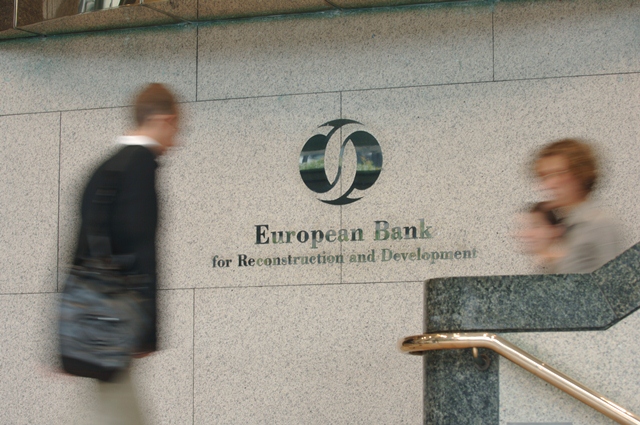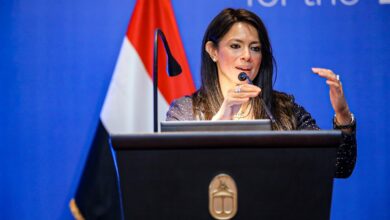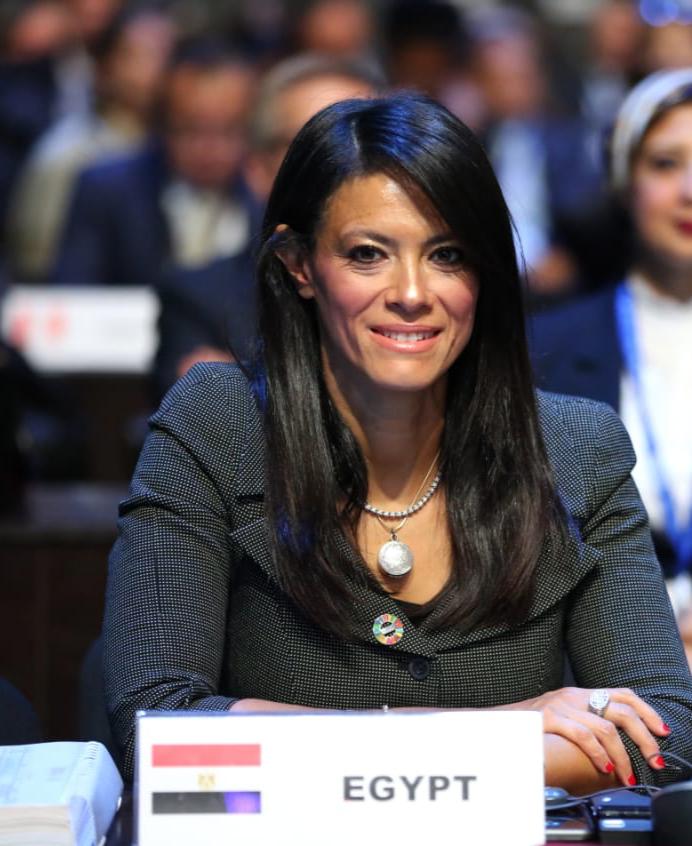
Under Hosni Mubarak’s 30-year reign, “the private sector” and “privatizations” became politically laden terms associated with a circle of businessmen buying state assets for cheap due to their connections with the president and his sons. Deals were made between the private sector, government and military companies under a veil of secrecy serving to enrich men on top, while laymen grew poorer.
As poverty and unemployment rose, Egypt received praise from international financial institutions such as the World Bank and the International Monetary Fund for achieving 7 percent GDP growth, even as workers, the unemployed and millions of others felt the economy was unjustly managed.
News that the European Bank for Reconstruction and Development is extending its remit and setting up a 1 billion-euro special fund to spend by September in Tunisia, Egypt, Morocco and Jordan — the so-called Southern and Eastern Mediterranean region — is being received with caution and skepticism by central bankers and civil society groups.
The bank was set up in 1991 to help post-communist countries in central and Eastern Europe that demonstrated a commitment to multiparty democracy transition from state-led to private sector-led economies. The EBRD has a mandate for meeting environmental and social sustainability goals set by its 63 government shareholders, of which the European Union and the US are among the largest.
But the bank’s role in central and Eastern Europe, where there was virtually no existing private sector, has been praised for injecting money when most needed but criticized for inadequately helping countries graduate from transition.
With a neoliberal economic agenda that at the outset did not look any different from what the region had seen before, and during transitions that have yet to set up the kind of checks and balances that encourage responsive policies in place, alarm bells are ringing.
Tunisian and Egyptian central bankers have cautioned the EBRD against applying a one-size-fits-all model, advising the bank to be sensitive to the region’s historical economic development.
“One should be very careful about transposing the experiences of Eastern Europe onto our countries. Focusing on liberalization and privatization now might be counterproductive,” Tunisia’s central bank governor, Mustapha Kamel Nabli, told chief ERBD economist Erik Berglöf before a full audience at the bank’s annual meetings in London last month.
“We’ve been doing that already for 30 years, and the fact that it was done badly and the fruits of privatization were taken by a small elite was one of the issues that contributed to last year’s revolution,” Nabli said.
Egypt’s deputy central bank governor, Rania al-Mashat, echoed this, saying that “reforms in Egypt have been taking place for a very long time. Many of them were solid and strong, but many were also partial and to a large extent led to the uprisings and Arab Spring.”
She said coming reforms need to tackle systemic structural impediments, such as allowing for more competition, transparency and accountability.
Civil society groups in Egypt and Eastern Europe have also been active in criticizing the bank for its pro-privatization policies and for approaching the SEMED region so early on in its transition. Most countries have yet to demonstrate a genuine move toward democracy and transparency, despite parliamentary and presidential elections.
In March, the Egyptian Initiative for Personal Rights issued a scathing critique of the EBRD’s technical assessment of Egypt, which praised external liberalization under the former regime. It encouraged further privatization and public-private partnerships, which EIPR said ignored the processes’ rampant corruption and crony capitalism.
Bankwatch, an organization monitoring lending practices of the EU, European Investment Bank and the EBRD, submitted a letter with a similar message to the European Commission in March last year. The Bankwatch letter was endorsed by 27 central and Eastern European civil society groups.
“It is premature to make commitments for EBRD financing for the Mediterranean region when it is by no means clear what kind of governments will follow the recently overthrown regimes. We also have serious concerns about the abilities of the bank to deliver meaningful development outcomes in the region … in no way can it be concluded that the EBRD has sufficient expertise in poverty reduction,” the letter states.
A March 2010 report by US Senate’s Committee on Foreign Relations accused the EBRD and other international finance institutions of suffering from a lack of transparency “regarding loan decisions, environmental impact, inspection panels, project assessment, etc.” The report criticized the EBRD for allocating 41 percent of its lending to Russia, which maintains illiberal practices.
Its lending program to Russia and other energy-rich countries is also criticized by Bankwatch for focusing heavily on fossil fuels and mining rather than renewable energy.
Egyptian novelist Ahdaf Soueif echoed these words of caution at the EBRD meetings, advising against using “Western-style democracy as the golden grail” by which transitions are measured, saying the Arab world “needs a completely new model.”
Soueif was also critical of the bank pushing the country in a certain direction, especially while it is run by unaccountable institutions such as the military, whose powers are unlikely to be checked by elections.
“I would advise all funding agencies to stay away and international bodies concerned with human rights to help,” she said.
But it’s not all bad news when it comes to the EBRD. Some Eastern Europeans were happy the bank came into their countries, saying it was needed to create a private sector and to influence public debate.
“The level of intellectual discussion on issues related to the economy went up several steps, and now you feel we live in a more civilized society. There is more discussion about the legal system and corruption,” Ukranian novelist Andrey Kurkov said.
Egypt’s private sector does need a cash injection that boosts job creation. Labor-intensive industries are needed for the 3 million unemployed, the majority of whom are between 15 and 29. It is a restive constituency that no longer fears taking to the streets.
What concerns skeptical voices the most is whether the bank will use its money wisely to support the industries that create jobs, ensuring the 40 percent poverty rate is reduced, and go beyond saying the right things about supporting small- and medium-sized enterprises and renewable energy, but doing the right thing.




